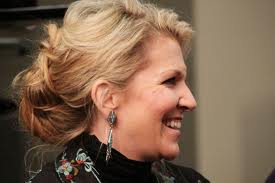|
Chamber
FAMILIAR AND NEW - TRIO NAVARRO'S SPRING CONCERT IN WEILL
by Terry McNeill
Sunday, April 21, 2024
Symphony
MONUMENTAL MAHLER 5TH IN SO CO PHIL'S SEASON ENDING CONCERT
by Terry McNeill
Sunday, April 14, 2024
Chamber
OAKMONT SEASON CLOSES WITH STRAUSS' PASSIONATE SONATA
by Terry McNeill
Thursday, April 11, 2024
Chamber
MORE GOLD THAN KORN AT ALEXANDER SQ CONCERT
by Terry McNeill
Sunday, April 7, 2024
Choral and Vocal
VIBRANT GOOD FRIDAY REQUIEM AT CHURCH OF THE ROSES
by Pamela Hicks Gailey
Friday, March 29, 2024
TWO OLD, TWO NEW AT THE SR SYMPHONY'S MARCH CONCERT IN WEILL
by Peter Lert
Saturday, March 23, 2024
Chamber
NOT A SEVENTH BUT A FIRST AT SPRING LAKE VILLAGE CONCERT
by Terry McNeill
Wednesday, March 20, 2024
THIRTY-THREE PLUS VARIATIONS AND AN OCEAN VIEW
by Terry McNeill
Saturday, March 16, 2024
Choral and Vocal
A ST. JOHN PASSION FOR THE AGES
by Abby Wasserman
Friday, March 8, 2024
Choral and Vocal
SPLENDID SCHUBERT SONGS IN SANET ALLEN RECITAL
by Terry McNeill
Saturday, March 2, 2024
|
 |
 Mezzo Soprano Joyce DiDonato |
DIDONATO, THE DIVINE DIVA
by John Boyajy
Tuesday, November 20, 2012
Mezzo-soprano Joyce DiDonato and the Baroque consort Il Complesso Barocco came to Sonoma State’s Weill Hall Nov. 20 with "Drama Queens," a concert consisting entirely of Baroque arias and instrumental works. The subtitle might well have been “How Not To Take Abuse, Infidelity, Revenge and Death Too Seriously.” Indeed, there were moments when Ms. DiDonato and her cohorts might have been mistaken for a rock group. She made it clear from the beginning that while she and the Complesso were classical musicians, it was not only acceptable but desirable to have some fun with one another on stage.
Ms. DiDonato, an international star who recently was named Musical America’s Vocalist of the Year, is the quintessential diva. She embraces her characters with intensity and conviction, and the result is mesmerizing. Many of her selections plied the depths of despair, torment, anguish and emotional pain, and in these, as well as the fewer more upbeat arias, her ability to capture the mood was brilliant.
Weill Hall’s acoustics were perfect for the Complesso’s 15 members. The strings sounded warm and rich, as did Ms. DiDonato’s voice, even in the softest passages. Before the many encores at the end of the concert, the singer told the audience, “You are so lucky to have this hall.” Understatement. The sound in Weill Hall is simply spectacular, and the audience luxuriated in the sonority.
The musicians--most importantly Ms. DiDonato and lead violinist Dmitry Sinkovsky--have clearly studied Baroque performance practice, and the music had a feeling of improvisation and spontaneity. Mr. Sinkovsky is a virtuosic leader, exhibiting his own flavor of charisma. The violinists and violists stood throughout the performance, but their leader went a step beyond, dancing, prancing and deep-knee-bending his way through every piece, his pony tail bobbing. An unnamed theorbo player was a gifted continuo contributor with refined projection. The group is small enough to have close rapport, often taking their cues directly from Ms. DiDonato. The ensemble playing was exemplary.
Ms. DiDonato’s voice is perfectly suited to the florid Baroque repertoire. She is a secure mezzo and has no difficulty with high tessitura, as in Giacomelli’s “Sposa, son disprezzata” (As a wife I am despised) and Hasse’s ”Morte col fiero aspetto” (Death's grisly aspect). She tossed off coloratura passages with skill and grace. She also exhibited great dynamic control, bringing an occasional phrase to an almost unbelievable level of softness. Only once during the evening did this strategy backfire for a brief moment, as a note faded beyond reach.
Elegant Baroque performance practice was notable throughout the evening. The strings players used a refined vibrato and frequent “hairpins” (paired crescendos and diminuendos). Ms. DiDonato also employed this technique, especially on long opening notes. There was plenty of ornamentation on the repeats, both by the instrumentalists and the singer.
One of the highlights of the evening was the Vivaldi Violin Concerto, RV 242, in which the athletic Mr. Sinkovsky demonstrated his ample technique and emotional drive in the virtuosic cadenzas. In his willingness to trade an occasional scratchy sound for passion and excitement, he reminded one of the Hungarian violinist Joseph Szigeti.
Responding to loud applause, Ms. DiDonato offered three encores. Keiser’s “Lasciami piangere” (Let me weep) was a slow and soulful threnody, and Orlandini's "Barbaro" (no translation needed) was a torrent of passionate invective. Handel’s lively “Brilla nell'alma,” which had concluded the formal program, was offered da capo to another ovation.
The musicians seemed to be having a good time throughout the evening. They smiled at each other often, and when she wasn't singing, Ms. DiDonato sometimes turned her back to the audience of 700 to smile in return. She also flicked her shoulders in time with the music and otherwise conveyed that this repertoire can be fun.
Except, perhaps, when she’s singing about torment, adultery and death.
|
